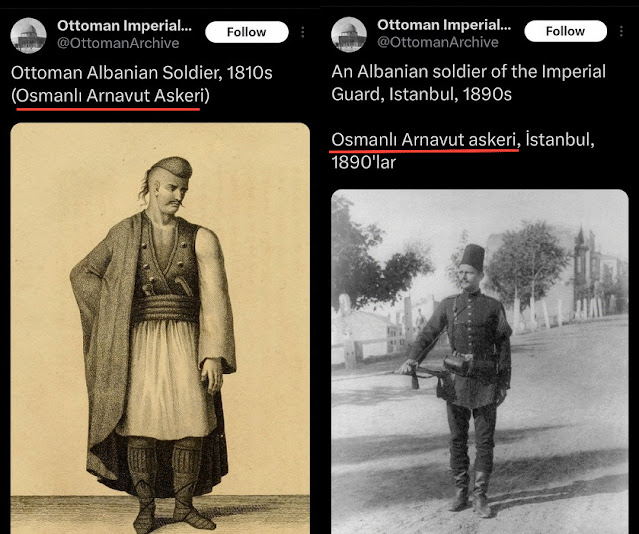French Military in Epirus Witnesses Albanian Sacking of Epirote Villages
L'Illustration was a weekly French newspaper published in Paris from 1843 to 1944. It was founded by Édouard Charton, a French journalist editor and politician.
This article below is written by Jeune Leune a French war journalist and correspondent who followed the army of Epirus and took pictures of them.
The article below describes the visit of French General Joseph-Paul Eydoux and other generals of the French mission to Epirus.
Translation of main points in the article:
“GENERAL EYDOUX IN EPIRUS
Athens, April 16, 1913
Since the fall of Janina, General Eydoux, head of the French military mission in Greece, cherished the project of going to Epirus to study on the spot this extraordinary terrain where the Greek army had so heroically fought...”
The Greek government had placed it at the disposal of the general, the officers, and the persons who accompanied him, a small steamer and several automobiles…
… General Eydoux set foot on the land of Epirus and a thousand times repeated Vive la France! To which they replied immediately with: "Long live Greece!"
After him, M. David, deputy of the Dordogne, transmitted to the population the fraternal greeting of the Parliament of France. He was able to eloquently express France's great sympathy for the Hellenic nation in general and for Epirus in particular. He even spoke of an indispensable and possible alliance between two countries where all courts have beaten and will always beat in unison, whenever it has been and will be a question of fighting for Greek civilization….
Then they pushed on to Argyrocastro. All along the road, the populations of the villages, led by a priest, with icons, crosses, and banners, had come to greet General Eydoux. The school children sang the Greek anthem, then the women, in festive costumes, began to dance to express their joy.
… He said again of all the satisfaction he had felt in collaborating with men like the Greek soldier and officer, and, finally, all the admiration he felt for the Hellenic army and its leader, King Constantine. , after their fine victories in Macedonia and Epirus…
…At Argyrocastro, the reception was no less enthusiastic on the part of the Greek population. Triumphal areas were erected, very simple indeed, made of two stakes, a beam, and a section of trellis through which ran a few green branches, but the resources of these villages are very modest, and above all the excellent intention was there, making up for the rest. French and Greek flags everywhere mixed their folds. Shops were closed as a sign of celebration…
The end of this interesting journey. Yesterday, General Eydoux returned to Athens, enchanted with all he had seen, and proud, more than ever, of the work accomplished by the Greek army, prepared by him and led by his king.






